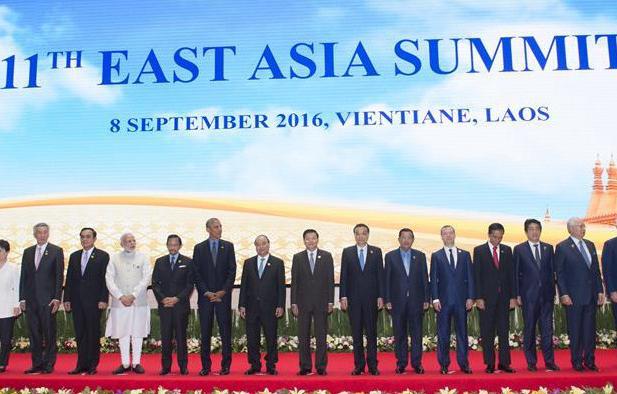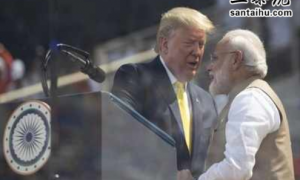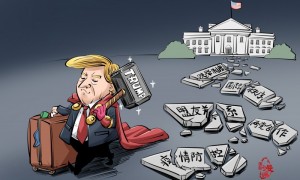导读:国务院总理李克强7日在老挝首都万象出席东亚峰会并发表演讲,阐述了中国南海立场的几大主张。

VIENTIANE, Sept. 9 - Chinese Premier Li Keqiang on Thursday spelled out China’s stance on the South China Sea issue in his speech at the 11th East Asia Summit, calling for concerted efforts of all relevant parties to properly handle disputes.
万象9月9日电 中国总理李克强于周四在第11届东亚峰会上发表演讲,阐述了中国的南海问题立场,呼吁有关各方齐心协力妥善处理争议。
Li reaffirmed China’s objection to the South China Sea arbitration, citing China’s right under United Nations Conference on the Law of the Sea (UNCLOS) to settling disputes primarily through dialogue and consultation.
李克强重申中国反对南海仲裁,阐述了中国在联合国海洋法会议框架下的权利,要想解决争端,主要通过对话和协商。
Li called for bringing sea disputes under control before they are settled.
李克强呼吁在海洋争端解决之前将它们控制好。
"China and ASEAN nations have the full wisdom and ability to manage the South China Sea issue," Li said, adding that nations outside the region should "understand and support" the efforts made by nations within it, rather than "overstating differences or even sowing the discord."
李克强表示:“中国和东盟国家完全有智慧和能力解决好南海问题。”并补充说,域外国家应“理解和支持”域内国家所作出的努力,而不是“夸大分歧或者甚至是挑起事端。”
Li stressed that China has always managed the South China Sea issue with a constructive attitude in order to guarantee regional peace and stability.
为了保障地区和平与稳定,李克强强调,中国始终以建设性态度来处理南海问题。
He expressed China’s readiness to work with other parties to translate challenges in East Asia into an opportunity for stability and sustained prosperity.
他表示,中国愿意与其它各方共同努力将东亚的挑战转变为稳定和持续繁荣的机会。
In his speech, Li lauded the role of the East Asia Summit in advancing understanding and mutual trust of all parties and promoting regional stability and prosperity in East Asia.
在演讲中,李克强赞赏了东亚峰会在推进各方理解与互信和推动东亚地区稳定与和平发挥的作用。
Li reaffirmed the two-pronged goal of economic development and political security for such a "strategic forum led by leaders."
李克强重申了“由领导人牵头的战略性论坛”的两大目标,即经济发展和政治安全。
On economic development, Li said all parties should place regional connectivity high on the agenda, step up building a free trade area, and cooperate more on social undertakings.
在经济发展议题上,李克强表示,各方应高度重视区域互联互通,加快建设一个自由贸易区,并就社会事业展开更多合作。
On political security, Li called for formulating a new Asian security concept, which are "common, comprehensive, cooperative and sustainable."
在政治安全议题上,李克强呼吁建立一个全新的亚洲安全理念,即“共同、综合、合作、可持续”。
Li reiterated China’s diplomatic principles that all countries, big or small, are all equal, should respect each other, and seek common ground and shelve differences.
李克强重申了中国的外交原则,所有国家,无论大小都一律平等,各国应当互相尊重、求同存异。
Li also urged closer cooperation on non-traditional security issues including terrorism, natural disasters, trans-national crime and infectious diseases.
李克强还敦促就非传统安全问题包括恐怖主义、自然灾害、跨国犯罪和传染病建立更加密切的合作。
For their parts, the summit leaders agreed on establishing a framework that can effectively meet non-traditional challenges.
峰会领导人也就建立一个能够有效应对非传统挑战的框架达成了一致。







